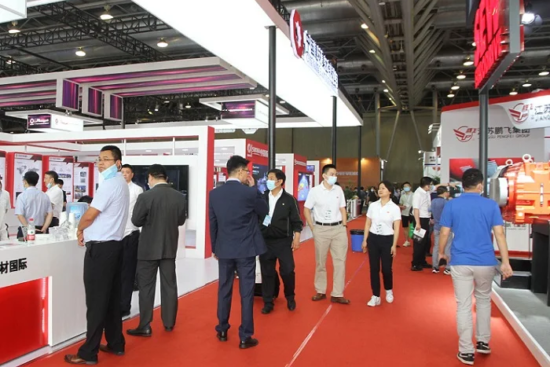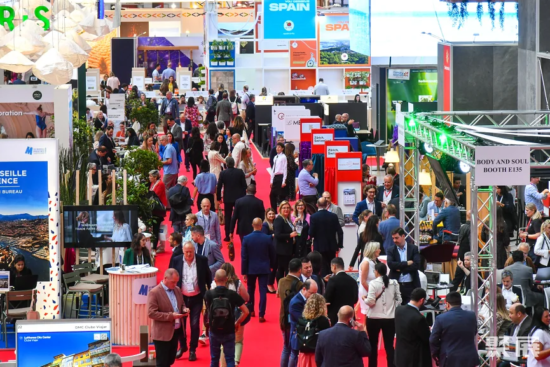
Chicago—Helen Sheppard, Director of Global Sustainability at RX, speaks trade show director An overview of how climate change is impacting exhibitions and how event professionals can successfully navigate this moment.
ANDREW: How do you predict the impact of climate change on the events industry?
Helen: We may already be seeing the effects of climate change on our activities. Extreme weather events do not necessarily occur more frequently in different parts of the world, but they are more severe.
Scorching weather in India disrupted events and there were flooding in Dubai…unusual for the region. In the United States, tropical storms in Florida are causing damage.
We must anticipate that these extreme weather conditions may cause disruption to our activities.
I also think that the industries we serve are experiencing the negative impacts of climate change – that’s where the events industry can provide support, because we have the opportunity to help our clients address these challenges… (and) be a knowledge partner for certain industries Partners in the industries we serve.
Andrew: How can organizers get ahead of or respond to the potential issues of climate change?
Helen: To some extent, you can choose the location and time of year to hold your event. However, some events occur in specific places for very specific reasons. Make sure your plans are well thought out to prevent unexpected events and know how to communicate clearly with visitors and exhibitors.
For organizers who want to focus on sustainability, I recommend starting with the things you can control…for example, does the event location have good transport links to enable people to travel more sustainably?
You may want to take a look at the venue itself. Does it have renewable energy options? Are there locally sourced food options? I’m considering the Javits Center because they have an amazing rooftop garden.
After that, start thinking about how you can use your buying power to influence your suppliers and let your suppliers know that you want to host a more sustainable event. You can have conversations with your suppliers about alternative materials…start with what you can control, then how you impact the wider value chain.
Andrew: Why should climate change be a priority for event organizers?
Helen: Whether you believe climate change is happening or not, you have to consider whether it matters to your employees and customers. A recent RX survey showed that climate change is very important to 80% of our exhibitors.
We’re going to see more of this: recognition that this is one of the most pressing issues of our time.
Andrew: Do you think climate change will impact event planning? If so, what to do?
Helen: Potential impact on supply chain. Investor rating agency MSCI has compiled statistics on the potential losses from rising temperatures in the future: If carbon dioxide emissions rise significantly by 2050, the average logistics warehouse worker in New York City could lose a lot of money by 2050, according to MSCI. Compared to 2020, productivity losses due to high temperatures increased by nearly 50%.
This really resonates with me because not only does our supply chain rely on warehouses, but our sites are very warehouse-like. We may need to allow more time for a build-up or collapse of events because people may not be able to work in these large warehouse-style buildings for very long due to excessive temperatures.
related. Explore climate change and trade shows with Alexandra Failla, Corporate Sustainability Manager at Diversified Communications
ANDREW: What advice do you have for organizers who want to optimize their events for sustainability?
Helen: If you’re just starting out, check out the Net Zero Carbon Campaign Pledge website as they have a great guide on how to get started.
RX activities that have been successful in implementing sustainability strategies have all key stakeholders delivering activities in specific sustainability working groups – they come together to develop actions and meet regularly to discuss progress on these actions. They build sustainability from the beginning rather than fixing it as an afterthought.
When it comes to hosting a sustainable event, the most important thing is to give yourself time to plan.
Consider how you can make your event more visibly sustainable. Things that are clearly more sustainable may actually have a small impact when it comes to changing carbon emissions from activities, but they are important and may impact other aspects such as waste or stakeholder engagement.
For example, there were no carpets at the event. This is a pretty bold decision and may depend on the industry. It may be ideal for manufacturing activities or B2C activities. For example, MCM London does not have carpets.
Make sure you communicate your actions to your customers and visitors so they are aware of all the initiatives you take.
There are also things that are less visible and far less glamorous, such as implementing better waste sorting… trying to increase recycling rates and trying to encourage exhibitors to be more sustainable in their stand construction.
ANDREW: Are there any RX activities that you would like to highlight its sustainability features?
Helen: We have a lot of activity serving the construction and real estate industry…particularly in Europe where they face a lot of regulation around decarbonization and have this need to be more sustainable.
RX events in these areas are really trying to push what they’re doing in terms of sustainability. Batimat and MIPM were really early on trying to incorporate this sustainability strategy and think about those visible changes they could make as well as those invisible changes.
From a regulatory perspective, the United States does not have the same pressure, and the momentum is not quite the same as in Europe. However, because many of the events we host in the U.S. are international, we are seeing some of these industries, particularly those with large numbers of international exhibitors, helping to drive change.
Earlier this year, we decided to pilot a zero-waste initiative at our ISC West show at the Venetian Hotel in Las Vegas. The team works hard to reduce waste and increase recycling rates. Much of this work occurs behind the scenes, backstage and in event preparation, including food packaging and more.
How to get more compostable packaging? How do you bring materials into your event that you know won’t go into landfill, can be recycled, reused or possibly composted? I was impressed by the team and engagement at our events in the US
ANDREW: How can sustainability enhancements help events?
Helen: There will be reputational benefits, particularly as the industry does feel the need to be more sustainable… but also, for some, cost benefits. If you can make your building more efficient and energy-efficient, you should save money. Investments in renewable energy may also eventually pay off.
For example, events held without carpets will obviously not have to purchase carpets and they will be able to invest that money into other aspects of the event.
Andrew: Is there anything else you’d like to add?
Helen: What’s really exciting about sustainability is the opportunity for our industry. We have this huge opportunity to better serve our customers by solving sustainability issues, and we also have this huge opportunity to collaborate within the industry and innovate more sustainable solutions.
Click here to learn about RX’s commitment to net zero emissions by 2040, discover curated net zero stories, read its sustainability online magazine and more.










Leave a Reply Cancel reply
You must be logged in to post a comment.